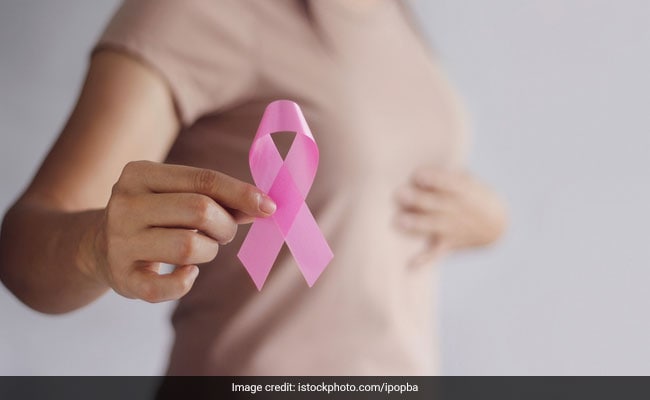
Breast cancer is the most common malignancy among women globally. From being fourth in the list of most common cancers in India during the 1990s, it has now become the first (NIH). According to WHO, "In 2022, there were 2.3 million women diagnosed with breast cancer and 670 000 deaths globally." Early diagnosis plays a significant role in treating it on time. It helps increase the survival rates of the patient. Breast cancer can affect both women and men but it rarely affects men. Therefore, every individual must understand their risk of breast cancer. We spoke to different experts to understand the importance of breast cancer awareness, who is at risk and how to control the risk.
Know your risk
Dr. Vishesh.Gumdal explains, "Early detection of breast cancer remains crucial to improve the survival rate as lower-stage cancers have higher survival rates. It is crucial to get breast cancer checked early to support better treatment. Breast cancer at an early stage is treatable and women should consult their doctors in case of any suspicion of breast cancer like a lump in the breast, discharge from the nipple, etc."
"With majority of deaths due to breast cancer coming from low and middle-income countries due to hurdles like late diagnosis and other social barriers to access the health care system, it becomes even more imperative to highlight the importance of awareness not just among women but to everyone at a community level," adds Dr. Gumdal.

Breast cancer can be treated effectively if diagnosed early
Photo Credit: iStock
Also read: Breast Cancer Awareness Month 2020: Early Detection Can Help Save Lives, Here's How
Should you be worried?
Dr. P. K. Julka stresses the risk factors of breast cancer and says, "Although breast cancer can affect women of all ages, races, and social class, not every woman is at risk of developing the disease. It is more common in women aged 50 years and older. Similarly, a woman with a positive family history (mother, sister) has about 2-3 times more likelihood of developing the disease than the one with no family history."
"Various risk factors are associated with the development of breast cancer that includes hereditary, environmental, hormonal and nutritional influences. The biological risk factors that a woman has no control include growing older, family history, mutated genes (BRCA1, BRCA2), early menstruation and late menopause," Dr. Julka tells DoctorNDTV.
Also read: Breast Cancer: What Puts You At A Higher Risk Of Breast Cancer? Know Some Prevention Steps
However, it is essential to conduct a self-breast exam at home to check for any symptoms. Every woman must conduct a test at home and if they spot any symptom it is vital to consult an expert immediately. Women, who are at higher risk, should get mammography done at least once in two years.
How to fight the risk of breast cancer?
Certain behavior or lifestyle choices can be changed to reduce the risk of breast cancer such as limiting the consumption of alcohol/quitting drinking, maintaining a healthy weight, physical exercise, breastfeeding, and use of birth control pills/hormone therapy under the supervision of a doctor.
"A woman can reduce cancer risk by achieving and maintaining a healthy weight by balancing food intake with physical activity. Moderate to vigorous physical activity is related to lower breast cancer risk. The American Cancer Society recommends that adults get at least 150 to 300 minutes of moderate-intensity or 75 to 150 minutes of vigorous-intensity activity each week (or a combination of these), preferably spread throughout the week to attain a healthy weight," adds Dr. Jyoti Bajpai.
Also read: Is Mammography Test To Spot Breast Cancer Necessary At All?
Early detection may help increase cure rates so every measure should be taken to diagnose early and take appropriate treatment on time.
(Dr. Vishesh.Gumdal , Medical Oncologist, American Oncology Institute at Kamineni Hospitals, LB Nagar Hyderabad)
(Dr. P. K. Julka, Senior Director - Oncology, Max Institute of Cancer Care, Lajpat Nagar, Delhi)
(Dr. Jyoti Bajpai, Medical Oncologist, Tata Memorial Centre, Mumbai)
Disclaimer: This content including advice provides generic information only. It is in no way a substitute for qualified medical opinion. Always consult a specialist or your own doctor for more information. NDTV does not claim responsibility for this information.
Track Latest News Live on NDTV.com and get news updates from India and around the world

